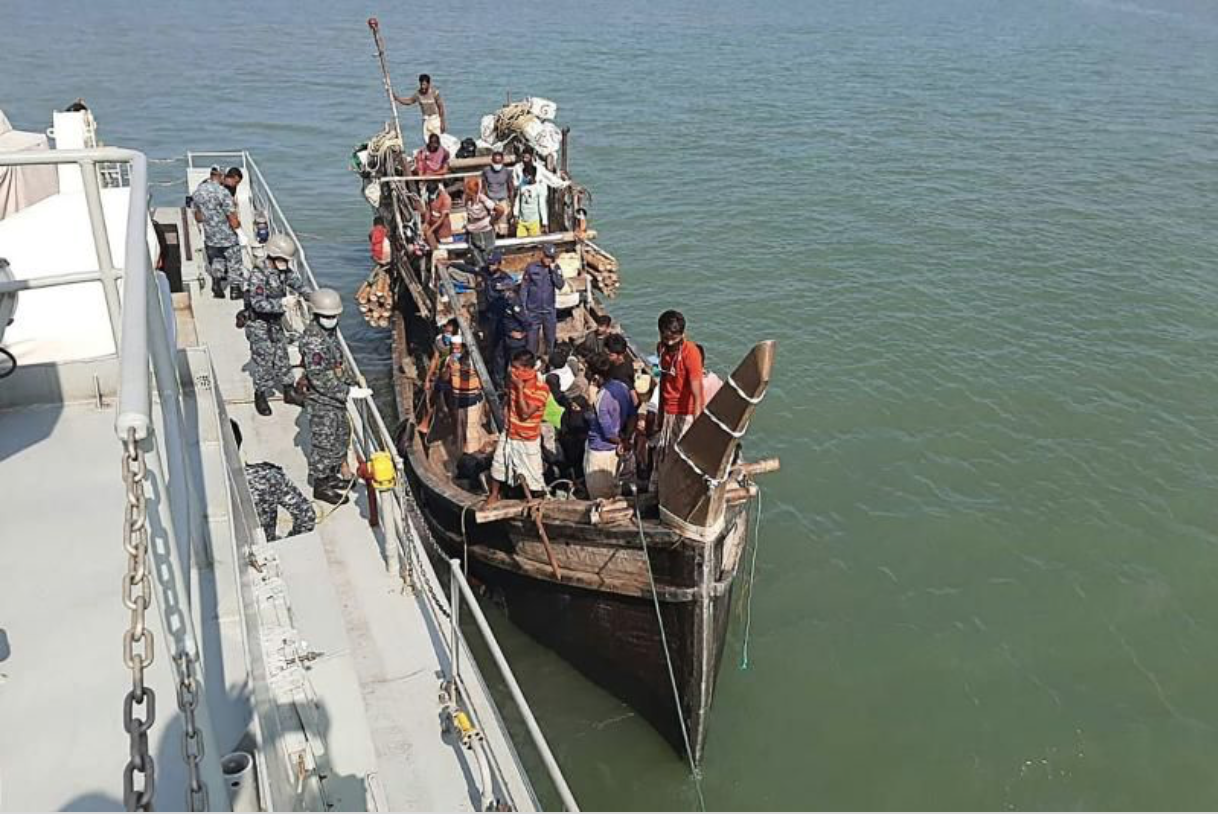Rohingya Refugees Relocated to Controversial Bangladesh Island After Weeks Stranded at Sea
Dozens of Rohingya refugees, who were stranded at sea for weeks, are now being quarantined for coronavirus on the island of Bhashan Char, in the Bay of Bengal.
The refugees were brought to the island, which is prone to cyclones, in order for the group to be kept away from the sprawling Cox’s Bazar, where nearly one million Rohingya refugees have been locked down since early April to avoid the spread of coronavirus to the vulnerable population, said Bangladeshi officials.
The Rohingyas are a majority Muslim ethnic group in Myanmar. Around one million Rohingyas have fled Myanmar to avoid persecution and violence that some experts call a campaign of ethnic cleaning by the Burmese government.
The boats —at least three—of Rohingya refugees wanted to dock in Malaysia, but were refused entry into the country amid a coronavirus lockdown and anti migrant sentiment spreading through the country. The boats ultimately returned to Bangladesh, their port of origin. Although the Bangladesh government did not want to accept them either, arguing that the country is already overburdened by the number of refugees in the country.
The boats were adrift for more than 10 weeks. Earlier, on April 15, one such boat carrying 400 Rohingya refugees was allowed to disembark in Bangladesh after being turned away from Malaysia. Dehydrated and malnourished, the 400 refugees who disembarked were the lucky ones. No one knows how many souls were lost at sea, although experts estimate the death toll may be around 30 to 70 people. Meanwhile, hundreds of refugees remain stranded at sea, somewhere between Bangladesh and Malaysia.
The Rohingya community and NGOs have been protesting the transport of refugees to the remote island, Bhasan Char, a low-lying and flood-prone island. Most of the refugees being sent there are women and children. Bangladeshi officials originally said it was to screen them for coronavirus, although the country’s Foreign Minister conceded that they could be held there until they return to Myanmar.
So far, there have been no confirmed COVID-19 cases in Cox’s Bazar, or among the returnees. Thousands of refugees have tried fleeing squalid camps in Bangladesh on shoddy, unsafe vessels.


